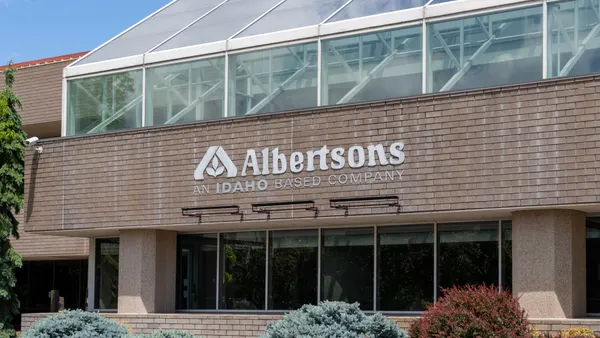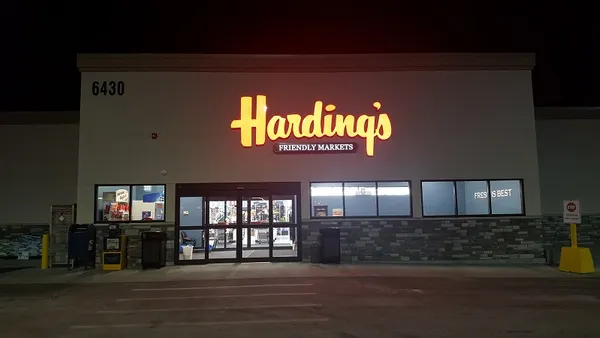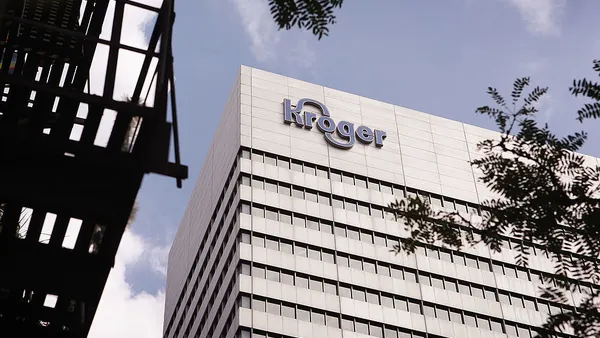UPDATE: Dec. 23, 2020: The Centers for Disease Control and Prevention has accepted the Advisory Committee on Immunization Practices’ recommendations about how COVID-19 vaccines should be prioritized, the agency announced on Tuesday.
Dive Brief:
- People who work in grocery stores are among the 30 million “frontline essential workers” who should be next to be vaccinated against COVID-19, a Centers for Disease Control and Prevention advisory panel recommended Sunday, according to multiple news reports.
- The Advisory Committee on Immunization Practices (ACIP) recommended in a 13-1 vote that grocery workers should be included with groups including firefighters, police officers, teachers and public transit workers and people who are at least 75 in Phase 1b of the CDC’s vaccine-distribution plan.
- The panel’s recommendation represents a victory for the food-retailing industry, which has spent months touting the essential role played by its workers as the nation fights the pandemic.
Dive Insight:
In making its recommendation, the advisory panel determined that the grocery industry is among the sectors whose workers are “essential to the functioning of society and are at substantially higher risk of exposure” to the coronavirus. That designation, if approved by the CDC, means people who work in supermarkets will be ahead of millions of other people in the United States as the government distributes the still-scarce COVID-19 shots.
Phase 1b vaccinations are expected to begin in early 2021, though an exact timeline wasn't provided in the ACIP's recommendations. NPR reported the group could start getting vaccines in January, while USA Today stated vaccine shortages mean Phase 1b won't begin until February.
The advisory panel also outlined its recommended groups to get vaccinated under Phase 1c, including individuals over 65, those with underling medical conditions that put them at risk of getting severely ill from COVID-19, and other essential non-frontline workers, including trucking and foodservice employees.
The Food Industry Association (FMI), which in November joined 14 other trade groups in calling on the federal government to give food, agriculture, retail and consumer packaged goods workers priority access to coronavirus vaccines, praised the panel’s decision.
“Food industry workers have gone above and beyond in demonstrating their continued resilience to meet unprecedented expectations and demand. Beyond the deep cleaning, shelf replenishing and physical distancing tasks, the pandemic has offered a new perspective on how essential the food industry worker is to the function of society,” the organization's president and CEO, Leslie Sarasin, said in a statement released Sunday.
“Prioritizing COVID-19 vaccinations for these frontline workers will help keep Americans nourished by protecting the nation’s supply of food and essential consumer goods, Sarasin added.
The grocery industry began making the case early on in the pandemic that grocery workers perform essential work and should receive priority when tools to protect against the disease are in short supply. In April, Albertsons and the United Food and Commercial Workers International Union (UFCW) joined forces to ask authorities across the United States to make it easier for grocery workers to access COVID-19 tests and personal protective equipment.
Although the Food and Drug Administration’s emergency authorization on Friday of a COVID-19 vaccine developed by Moderna, a biotech company, and U.S. government scientists brings a second shot into the battle against the disease, it is likely to be months before that vaccine and the one from Pfizer and Germany’s BioNTech that received FDA clearance on Dec. 11 are widely available.
As of Dec. 20, about 2.8 million vaccine doses had been distributed and approximately 556,000 people in Phase 1a of the vaccination rollout effort had received the first of two doses needed to vaccinate someone against the disease. That initial phase comprises health care workers and residents of long-term care facilities.














